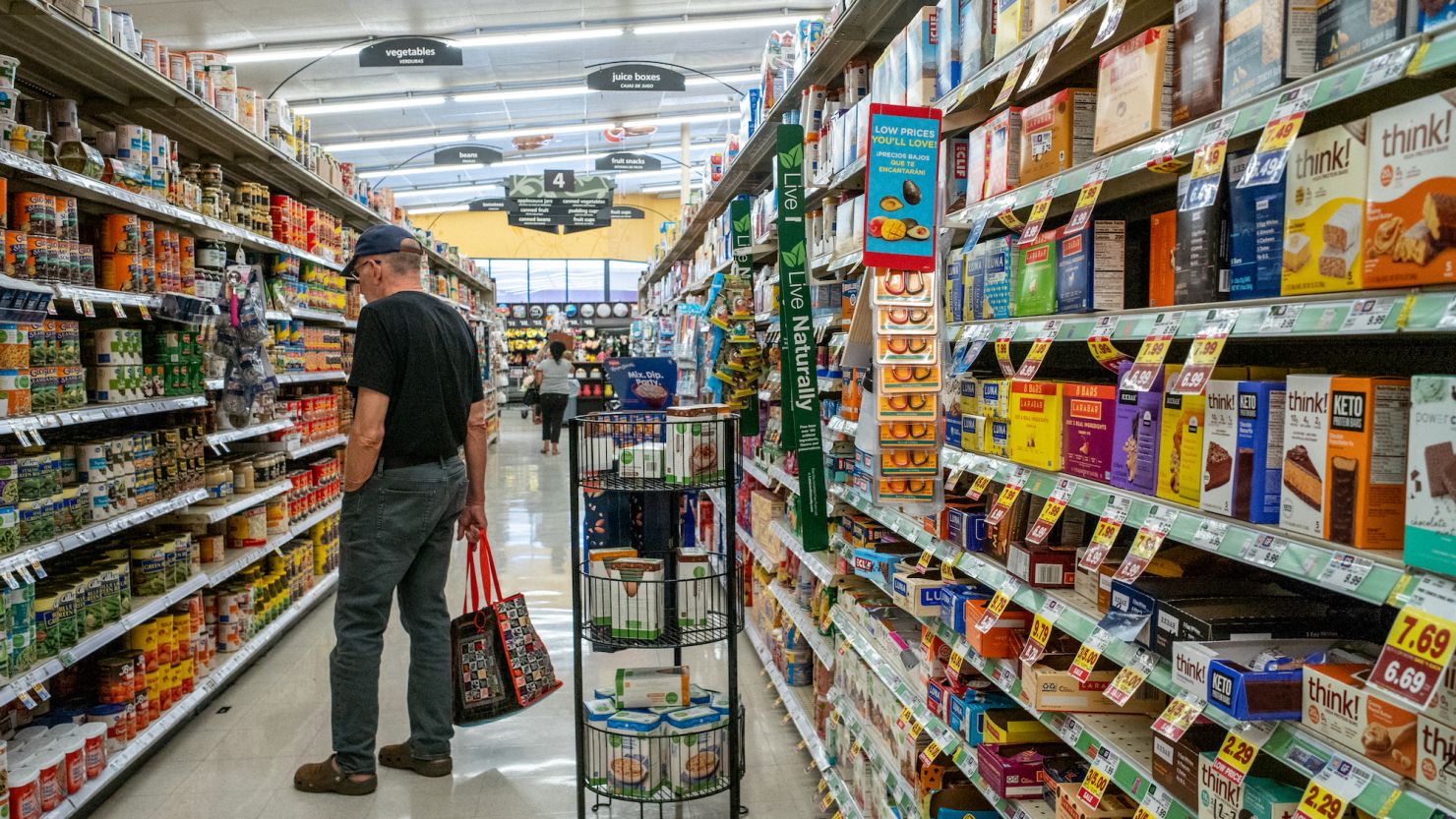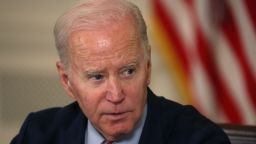Americans’ views of the economy are the best they’ve been in more than a year, according to a new CNN poll conducted by SSRS – but they’re still pretty bad, with 7 in 10 saying it’s in poor shape. Closer to home, 50% say their own financial situation is worse than it was a year ago.
About 3 in 10 Americans, 29%, call the country’s economic conditions good. That’s up from 22% in CNN’s polling last fall but well below the 54% majority who said the same in April 2021. Compared with last fall, the share now saying the economy is good has risen 15 points among Democrats and 10 points among independents, with little change among Republicans.
The survey finds little optimism that the economy will turn around in the next year. About 4 in 10 Americans (39%) expect economic conditions to be good a year from now, a similar outlook to last fall. And the economy continues to top Americans’ list as the most important issue facing the nation.
Half say they’re personally worse off than they were a year ago, with 17% saying they’re now better off, and the remaining third saying that they’re doing about the same. That’s almost unchanged since December, when 49% said they were worse off and remains among the most pessimistic readings on that question across CNN and Gallup polling dating back to 1976.
A 62% majority disapproves of how President Joe Biden has handled helping the middle class, including a third of Democrats who give him a negative rating on the issue. Democratic approval of Biden’s approach to helping the middle class has dropped from 76% last fall to 67% now.
More broadly, only about 31% of Americans say things in the country are going well today. The most recent CNN poll to find a majority of Americans saying things were going well was just before the start of the Covid-19 pandemic. There’s a significant partisan divide: 54% of Democrats say things are going well, compared with 33% of independents and just 7% of Republicans.
Americans’ perspectives on the state of the nation are also often grounded at least partially in their views of the state of its economy. Asked to explain their view of how things are going in the US today, both 35% of those who say things are going well and 52% who say things are going badly mention economic factors, but not the same ones. Those in the positive camp are more likely to focus on jobs or the employment rate, while those on the negative side are far more likely to point to inflation or the cost of living.
Overall, the public still reports hearing largely grim news about the economy: 84% say they’ve heard at least some bad news lately about the economy, with 46% saying they’ve heard a lot of bad news. Just 28% say they’ve heard some good news.
Americans rank the economy at the top of a list of seven issues, with 37% calling it the most important issue facing the country. A majority of the public, however, is split between other, non-economic concerns: political division (16%), crime and gun violence (15%), immigration (7%), climate change (7%), national security (6%) and racial injustice (6%).
Beyond economic factors, those who say things in the nation are generally going well are most likely to cite governmental and societal factors (26%), including 6% who are glad to see former President Donald Trump and his party out of the White House, and 5% who credit Biden and Democrats. Another 15% mention domestic policies and issues, including the improving Covid situation (6%). Another 8% in this group, meanwhile, say they’re simply doing well themselves.
In addition to the economy, many of those who say the country is doing badly also cite aspects of government and society (30%), including 11% who specifically criticize Biden and his party, and 7% who point to political division or polarization. Another 18% mention societal problems, with most in that group pointing to crime, gun violence and school shootings. And 17% mention domestic policies or issues, with 10% most concerned about immigration and the nation’s borders.
Partisan disagreement over major issues
The political divides that some point to as a major problem are evident in broad partisan disagreement about which issues matter most. While roughly half of Republicans call the economy the nation’s top problem, Democrats are closely split among the economy, political division, and crime and gun violence, with just shy of a quarter picking each. And while a 58% majority of Republicans who say things are going badly in the US cite economic factors, a more modest 40% of Democrats offer up the same rationale.
On several major issues, Americans say their views more closely align with Republicans than with Democrats. On the economy, 41% of US adults say their views are closer to the Republican Party, compared with 29% who say their views are closer to the Democratic Party – a similar divide to CNN’s polling a year ago. The public also sides with the GOP on crime and policing (40% to 28%), immigration (40% to 30%) and government spending (35% to 26%).
Americans are closer to evenly divided between the parties on views of the country’s role in world affairs, with 35% favoring the GOP and 32% the Democrats. And the public is also relatively split on a cluster of “culture war” issues that have reemerged recently in the nation’s political conversation. On freedom of speech, 37% side with Republicans and 35% with Democrats, while on “policies around parents’ rights,” it’s 36% Republicans to 33% Democrats. On social and cultural issues more broadly, 36% say they tend to agree with Democrats and 33% with Republicans.
Abortion remains the issue where Americans most clearly side with Democrats – 40% say their views on the topic align more with that party, with just 30% feeling closer to Republicans’ views.
On each issue tested, 28% or more of Americans say their views don’t line up with either party. Democrats are less likely than Republicans to say they agree with their own party on most of the issues, particularly immigration, the economy and crime and policing, while they’re more solidly behind their party’s position on abortion. Political independents side with Republicans over Democrats by a double-digit margin on the economy and crime and policing, while giving the Democrats a double-digit advantage on social and cultural issues, as well as abortion. Across nearly every issue, about half of independents say neither party better reflects their views.
The CNN Poll was conducted by SSRS from March 1 through 31 among a random national sample of 1,595 adults initially reached by mail. Surveys were either conducted online or by telephone with a live interviewer. Results for the full sample have a margin of sampling error of plus or minus 3.3 percentage points; it is larger for subgroups.
CNN’s Jennifer Agiesta contributed to this report.



